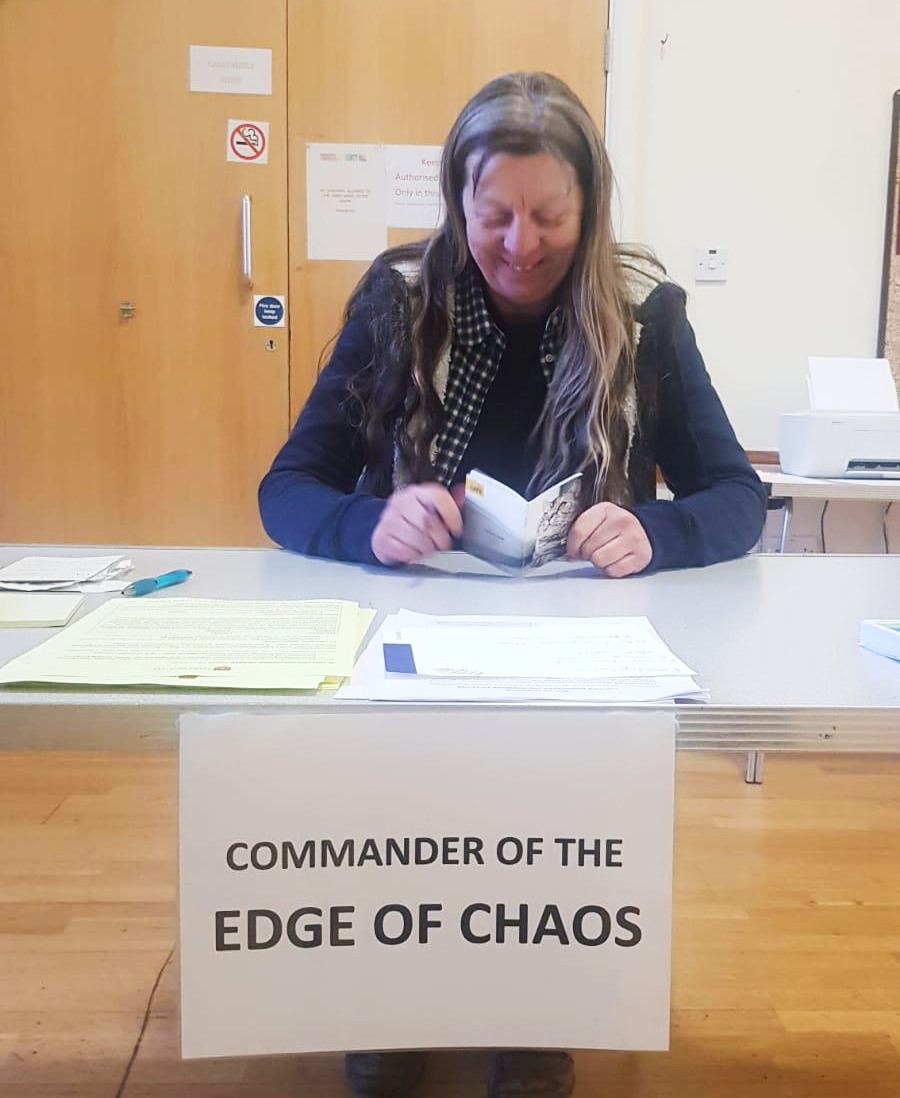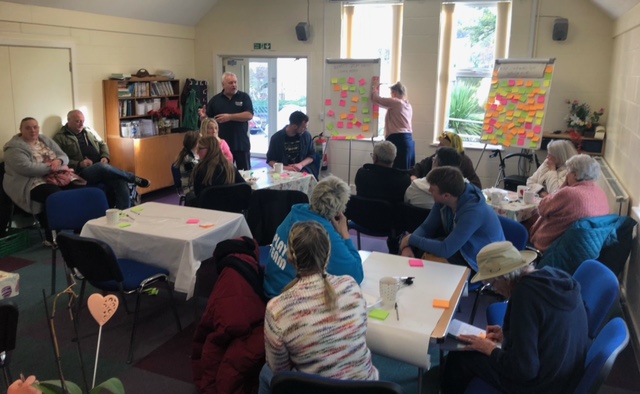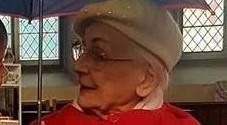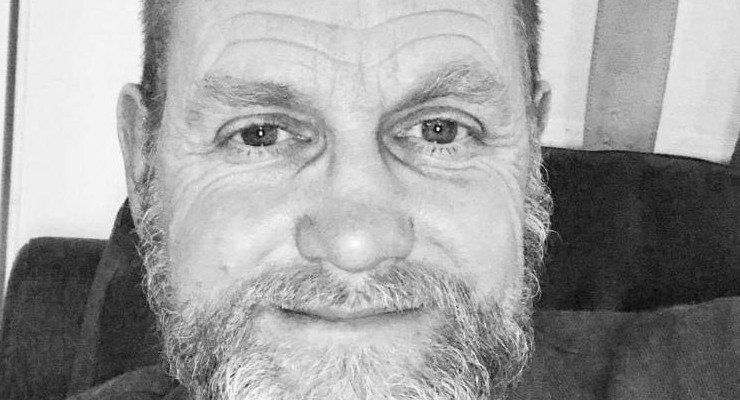
After weeks of relentless work offering food and care to Dartmouth, Townstal and the surrounding village communities during the Covid crisis, Dawn Shepherd, founder of Dartmouth Community Chest still manages to punctuate her conversation with an easy giggle. When we spoke there was no sign of the lockdown situation changing. And from Dawn’s insight, the repercussions of Covid-19 for residents dependent on seasonal work will be felt well into next year, possibly beyond.
TQ6 Community Partnership (TCP) supported by C2, began in 2009 and has been partnering with Dartmouth Community Chest to provide free hot meals, emergency food parcels and prescriptions for the whole town, including Townstal and neighbouring villages. With the number of meals cooked in a small community hall kitchen approaching the four-figure mark, there’s no sign of the need letting up. Although some people are saying they are expecting a change soon.
“They’ve had emails saying they ‘should’ be paid next week, so I said wait til that’s money in the bank before you tell us you don’t need us,” said Dawn.
“Even after they get paid, if it’s 80 per cent of the wages they were just about managing on, it’s not going to last for a full month. They’re not paying 80 per cent of their bills. Universal Credit runs out before the month does. I tell people we’re here and you can start this whenever you need to.
‘We’re happy to feed as many as we can’
“They’re such decent people, whenever they go through this in the winter they’re the first ones to say, ‘let someone else have it, we can manage’. But we’re happy to feed as many as we can. We’ll do it. We always pull it out the bag somehow,” said Dawn, with another of her trade-mark giggles.
In normal times Dawn and TCP would be aware of when season hours go down in the town. One annual point of contact is the TCP community Halloween party which coincides with a time when seasonal hours have dropped.
“We get to see them and we say we’re here if you need us,” she said. “But this is different because we haven’t been around each other and the lockdown was instant. When it was done, I contacted everyone we knew, saying if you need us we’re here, we’re doing something together.”
Visible and contactable
It’s more than waiting to be contacted.
“To get to as many as I could I went round all the social housing flats, all the blocks of flats, and the areas I know where people live who struggle and put a box of food and note on it saying this is how to get hold of us, this is what we’re doing, please call us. It was quite successful at getting to people who might not normally need us,” she said.
“My biggest fear was people going without.”
When the first letters arrived informing high-risk people of a three-month lockdown, Dawn tried to reach as many people as possible. She put notes through doors and targeted the hot-spots of seasonal work. A big part of that drive was to reassure people that help was available.
Neglect and hunger and fear
“I had a feeling in the beginning that neglect and hunger and fear would kill more people than the illness,” said Dawn. Part of that ongoing reassurance is putting homemade cards offering words of kindness in with the provisions. Dawn said they are ‘messages to stay connected with people who are just really lonely and scared’.
Knowing people are there, as well as the food boxes is massive.
“Not many people are mentioning money and food,” said Dawn. “They’re mentioning being together, missing each other. We try to, in the best way we can, keep that community spirit going. And I think that’s probably overlooked. People need people, they really do. It’s a hunger to be with other people.”
Part of that need for people – and to be needed – is being fed by volunteering. Helping out gives people a structure to their day, said Dawn.
The need for people
“The trouble we’re having with the volunteers is, they don’t want to go home!”
The extra volunteer support is vital for the core team, who have been doing 12-13 hours days since the crisis began, expanding their knowledge and experience to deal with the fluidity of events.
“It’s not just the work, the work’s fine – it’s the pressure, the worry, the stress,” Dawn said. Because of the nature of the setup, they’ve created a B Team to shadow and take responsibility for vital areas: information like dietary requirements and dropping off points are just the tip of the iceberg. Part of that need for sharing responsibility comes from the potential length of the crisis.
“We’ve planned on it being three months because even if people get their wages and their benefits, there are a lot of people on our list who have got to stay inside for three months.
“The fall out will carry on for us as a town.”
“And it will carry on when the virus threat is gone. Economically, our town will be on its knees because no-one’s had any seasonal work, some of them are on zero-hours and they don’t know if they’ll have a job to go back to. The fall out will carry on for us as a town.”
Dawn points out the seasonal nature of work means people need as many hours as possible during spring and summer to last throughout the autumn and winter.
“Our work will continue and I think this will go on for us till next March to get people into a place where they can manage,” she said.
Sharing stories
An added benefit of the number and variety of volunteers is that the reality of life in Townstal and Dartmouth has been shared with those who wouldn’t otherwise see it.
“We’re getting people from different backgrounds who haven’t volunteered with us before because they’re professional people working loads of hours. They understand the virus part, but they ask why we have been doing this for 10 years. So we’re explaining what happens here to a wider audience of people who, not for any nasty reason, didn’t understand it. Hopefully, that will ripple out across the town.”
You could say it was ripples that got Dawn involved in this sort of thing. Ripples of need, and from across the water. Geography, political and actual, plays a part.
Identifying a need
Dawn used to work at the women’s refuge in Paignton. Cuts reduced the hours, which made continuing there unsustainable. The trip to Paington from Dartmouth includes a ferry journey plus there was parking. But she continued to waitress in Paignton, until job threats meant it was better for her to give up her role to those in the town. That’s when her focus shifted to Dartmouth and Townstal.
“From my time in the refuge in Paignton, I knew that when a woman left, what to do with them next. That’s the important part, they’re safe in the refuge, they’ve done the hard job now they’ve got to start a life outside of that cocoon for themselves. Some of them have lived a life where they’ve not been allowed money or to make a decision – they have nothing,” she said. Daunting bureaucracy can push people back to unhealthy relationships. In Torbay, that route of flat, food, furniture was accessible. Not so in Dartmouth and Townstal, said Dawn.
“When I started working over here I realised there was absolutely nowhere to send anyone if that happened,” she said. “People were being helped from Torbay, because there was nothing this side of the water for them.”
Dawn spoke to Nigel at Anode in Paignton, who confirmed the distance of their delivery and he suggested Dawn set up a food bank herself.
Home-grown
“I started it at my house with some of my friends. I said to people, if anyone you know is struggling just ring me. It started off with just half a dozen and it was building as soon the word was going around and I thought this would have to become a proper thing.”
Dawn called a public meeting and heard that people had thought of creating a food bank before but didn’t know how to start.
“We got a committee together and it rolled on from there,” she said. “It’s never not been busy. Some people told me they used to wait until everyone had gone to bed and go fishing for food.” Others would search for lifts to the nearest food bank.
With not wanting to turn people away, but concerned about them travelling too far, Dawn shared her knowledge with neighbouring towns.
“After a few years I started to think – this is like a revolving door of poverty. What are we doing wrong here? We need to address more the reasons that people come,” Dawn said.
Seasonal work
Season work was a big reason. Dawn asked the questions ‘What can we do as a town, what can we do to make people’s lives easier?’ She pointed out that if people get another job, the training and experience built up with previous and current employers goes to waste. For a while, it worked, with some offering to keep staff on for a minimum of 16 hours throughout the year. Which meant that come October, they were already on the system and didn’t have to wait for the help.
“But then the benefits changed again, and the minimum was 30 hours. Employers couldn’t take all their staff on for 30 hours during the winter; it would have bankrupt them,” she said. Which means now, if you lose your job in October, state support may not kick in before Christmas.
Chipping away at inequality
“We just keep on chipping away at that inequality,” she said.
Which is why that mix of volunteers has been so important during the Covid-19 crisis. People from different parts of the community have been mixing. And they’ve been getting to hear about the lived experience of others in the town, about employers and the nature of the seasonal work.
“Those conversations are being had. It’s important, and they’ve been quite open about what it’s like. I hope it makes a difference,” said Dawn.
“When I talk to some of the employers, I say people will work for you all week for a minimum wage and do a decent job. They will volunteer for us for free on their day off. They’re hard-working, they want to feel part of something, they want to feel valued, and they want to be part of their community. Disconnecting people from their community and their families is massive.
Mental health
“I’m worried about the mental health problems this is going to cause in areas where there is nothing like ours. When our volunteers do deliveries to some of the old ones who can’t come out, they stand at the end of the path asking if they are alright and they don’t leave. A lady rang me last week and she said, ‘I wait all day for Bethany and Luke to bring me my parcel and they have a little chat from up the path with me. That’s the highlight of my day’. She didn’t mention the food – it was seeing them!
“And that’s why we try to connect people wherever we are, whatever we do.”
To connect those people you need a space.
A space to share
“When Sainsbury’s cafe opened it really helped people to sit and have a coffee with a friend that didn’t cost an arm and a leg. They didn’t have to get a bus or walk downtown and back with kids. We are creating these spaces
“Some of the young mums don’t need much help other than to have a space to be together. It’s massive for them.
“The answers are, and have always been in this community, we just need somewhere to get together to share that.”
Dawn’s words have long resonated with us in C2. This space could soon become a reality thanks to a bid led by TCP in partnership with C2 which has reached the final stage and a decision is imminent. So literally ‘watch this space’ in the next few weeks!



